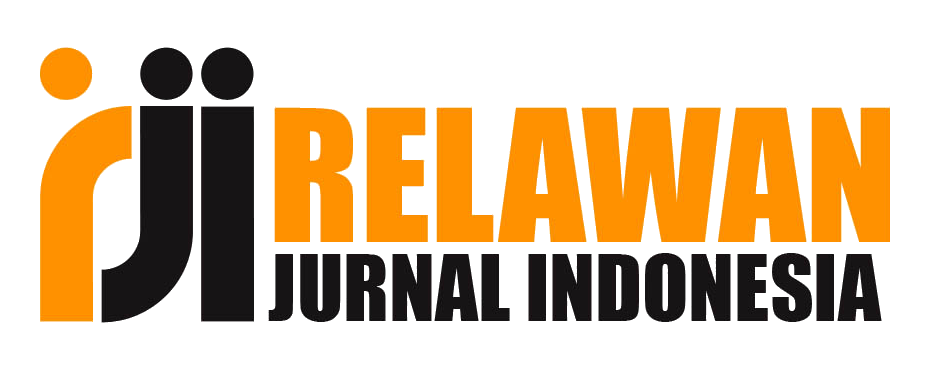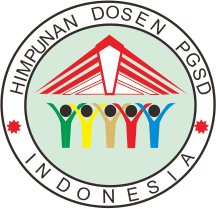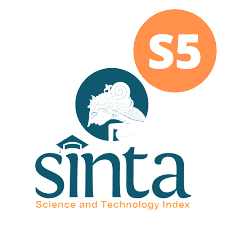IMPLEMENTASI PROJEK PENGUATAN PROFIL PANCASILA TEMA KEARIFAN LOKAL DENGAN KONTEKSTUALISASI PERMAINAN TRADISIONAL
DOI:
https://doi.org/10.33061/js.v6i2.8177Keywords:
Project for Strengthening Pancasila Student Profiles, local wisdom, traditional gamesAbstract
The Project to Strengthen Pancasila Student Profiles at SD Negeri 1 Wonosegoro has only been carried out by grades 1 and 4, because these two classes have just implemented the Independent Curriculum. The two classes have the same theme, namely local wisdom, where the difference lies in the choice of contextualization. For grade 1 choose the contextualization of traditional games according to their stage of development. The aim of implementing the Pancasila Student Profile Strengthening Project is to achieve the dimensions of Pancasila Students, where the dimensions that have been agreed upon by all school stakeholders to be achieved through this project are to develop a spirit of Global Diversity, Independence and Mutual Cooperation. The selection of contestualization of Traditional Games is also intended as one of the efforts so that students play a role in efforts to preserve culture. The method in this research is qualitative research where the data is obtained from observation, interviews and documentation and is concluded through a qualitative description. Through the implementation of the Project to Strengthen the Pancasila Student Profile at SD Negeri 1 Wonosegoro it is hoped that it will be able to shape SD Negeri 1 Wonosegoro students into beings who reflect the Pancasila Student Profile.
References
Adnyana, I. K. S. (2022). Mewujudkan Profil Pelajar Pancasila Melalui Pembelajaran Bahasa dan Sastra. Seminar Bahasa, Sastra, Dan Pengajarannya (Pedalitra II) Pembelajaran Bahasa Dan Sastra Sebagai Penguatan Profil Pelajar Pancasila, Pedalitra II, 28–36. https://blog.kejarcita.id/profil-pelajar-pancasila-kurikulum-merdeka/
Aiman Faiz, Imas Kurniawaty, P. (n.d.). EKSISTENSI NILAI KEARIFAN LOKAL KAULINAN DAN KAKAWIHAN BARUDAK SEBAGAI UPAYA PENANAMAN NILAI JATI DIRI BANGSA.
Alfarisi,S. (2020). Analisis Pengembangan Komponen Kurikulum Pendidikan Islam di Madrasah Diniyah. Rayah Al-Islam. 4(2). p.347-367
Amri, U., Ganefri, G., & Hadiyanto, H. (2021). Perencana Pengembang Dan Pendidikan Berbasis Kearifan Lokal. EDUKATIF : JURNAL ILMU PENDIDIKAN, 3(5), 2025–2031. https://doi.org/10.31004/edukatif.v3i5.751
Hamzah, M. R., Mujiwati, Y., Khamdi, I. M., Usman, M. I., & Abidin, M. Z. (2022). Proyek Profil Pelajar Pancasila sebagaiPenguatan Pendidikan Karakter pada Peserta Didik. Jendelaedukasi.Id, 02(04), 553–559.
Hapsari, I.I. dan Fatimah, M. (2021). Inovasi Pembelajaran Sebagai Strategi Peningkatan Kualitas Guru di SDN 2 Setu Kulon. Prosiding dan Web Seminar (Webinar). “Standarisasi Pendidikan Sekolah Dasar Menuju Era Human Society 5.0â€, Cirebon, 28 Juni 2021
Hidayah, N., Rostika, D., Abdurhman, O., & Studi Pendidikan Guru Sekolah Dasar, P. (2022). Batik Cap Sederhana Berbasis Pewarna Alami sebagai Media Proyek Profil Pelajar Pancasila di Kabupaten Sukabumi. Jurnal Abdi Masyarakat Indonesia, 2(6), 1743–1750. https://doi.org/10.54082/JAMSI.515
Kahfi, A. (2022). Implementasi Profil Pelajar Pancasila dan Implikasinya terhadap Karakter Siswa di Sekolah. DIRASAH: Jurnal Pemikiran Dan Pendidikan Dasar Islam, 5 (2), 138-151.
Kaimuddin. (2019). Pembelajaran Kearifan Lokal. Prosiding Seminar Nasional FKIP Universitas Muslim Maros, 1, 73–80.
Latif, Y. (2020). Reaktualisasi Pancasila. https://pusdik.mkri.id/materi/materi_197_Reaktualisasi Pancasila (Yudi Latif).pdf
Luqyana, S. N. (2022). Pendidikan Berbasis Kearifan Local Sebagai Pengembangan Karakter Melalui Pendidikan IPS.
Mega, G., Baitul, S., & Arif, M. (2018). Eksistensi Permainan Tradisional Sebagai Warisan Budaya Bangsa.
Nadlir. (2014). Urgensi Pembelajaran Berbasis Kearifan Lokal. Jurnal Pendidikan Agama Islam, 2(2), 300–330.
Niman, E. M. (2016). Kearifan Lokal Dan Upaya Pelestarian Lingkungan Alam. 10, 91–106.
Prastowo, A. (2018). PERMAINAN TRADISIONAL JAWA SEBAGAI STRATEGI PEMBELAJARAN BERBASIS KEARIFAN LOKAL UNTUK MENUMBUHKAN KETERAMPILAN GLOBAL DI MI/SD. JMIE (Journal of Madrasah Ibtidaiyah Education), 2(1), 1–28.
Riyanti, A., & Novitasari, N. (2021). PENDIDIKAN MULTIKULTURAL BERBASIS KEARIFAN LOKAL BAGI SISWA SEKOLAH DASAR. Jurnal Adat Dan Budaya Indonesia, 3(1), 29–35. https://doi.org/10.23887/JABI.V3I1.37780
Rosmana P.S., et al. (2022). Kebebasan dalam Kurikulum Prototype. As-Sabiqun: Jurnal Pendidikan Islam Anak Usia Dini. 4(1). p.115-131
Sa’adah Mutiatus, & Mawardi. (2019). Peningkatan Kebermaknaan dan Hasil Belajar Siswa melalui Desain Pembelajaran Tematik Terpadu Berbasis Projek di Sekolah Dasar.
Shufa, F., Khusna, N., & Artikel, S. (2018). Pembelajaran Berbasis Kearifan Lokal Di Sekolah Dasar : Sebuah Kerangka Konseptual. Inopendas Jurnal Ilmiah Kependidikan, 1(1), 48–53.
Syam, A.R. (2017). Posisi Manajemen Kurikulum dan Pembelajaran dalam Pendidikan. MUADDIB. 7(1).p.33-46
Tirtoni, Feri. (2016.) Pembelajaran PKn di Sekolah Dasar: Inovasi Melalui Strategi Habituasi dan Program Kegiatan Sekolah Berkarakter. Yogyakarta:CV. Buku Baik
Widyanti, T. (2016). Penerapan Nilai-Nilai Kearifan Lokal Dalam Budaya Masyarakat Kampung Adat Cireundeu Sebagai Sumber Pembelajaran Ips. Jurnal Pendidikan Ilmu Sosial, 24(2), 157. https://doi.org/10.17509/jpis.v24i2.1452
Downloads
Published
How to Cite
Issue
Section
License
Copyright (c) 2022 Jurnal Sinektik

This work is licensed under a Creative Commons Attribution-NonCommercial 4.0 International License.
Authors who publish this journal agree to the following terms:
- Authors retain copyright and grant the journal right of first publication with the work simultaneously licensed under a Creative Commons Attribution License that allows others to share the work with an acknowledgement of the work's authorship and initial publication in this journal.
- Authors can separately make additional contractual arrangements for non-exclusive distribution published by the journal (e.g., publish it in a book), with an acknowledgement of its initial publication in this journal.
- Authors are allowed and encouraged to send their work via online (e.g., in the institutional repositories or their website) after published by the journal.














